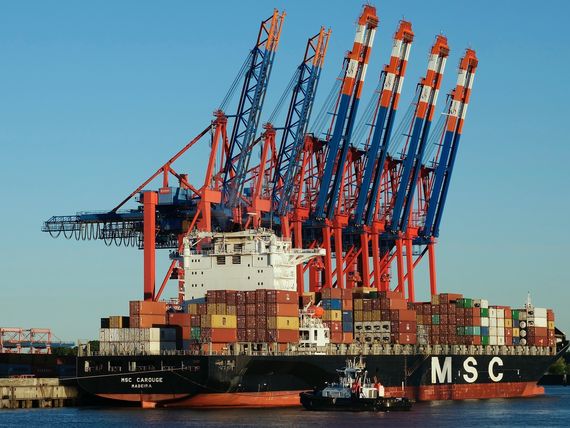US-China trade war: Implications for US ports

Earlier this year, the American Association of Port Authorities (AAPA) presented a seminar, “Port Governing Boards,” with considerable time allocated to trade tensions between the United States and China and the implications for U.S. ports.
In his opening remarks, Kurt Nagle, AAPA President and Chief Executive Officer, laid out the conflict and its financial implications succinctly: “AAPA is concerned about the overall impact of additional Chinese tariffs on port-related jobs, as well as specific concerns related to ship-to-shore cranes and cargo handling equipment used at ports.”
The impact cannot be understated: “The total Section 301 tariffs on Chinese commodities and China’s retaliatory responses to date would cover 8.4% of trade through America’s ports by value,” he said.
That figure swells to 20% of containerized cargo imported through California alone, tallying more than $60 billion in trade value. And, along with that staggering loss, would be job losses that ripple through the maritime sector and the U.S. supply chain associated with U.S. ports. The result would be shippers sourcing goods from other companies, further reducing container vessels away from the U.S. West Coast.
One item that has U.S. port officials up in arms: ship-to-shore cranes, which are manufactured in China. With U.S. ports handling larger volumes of cargo and looking to expand, they would look to these cranes to help in their expansion efforts (large cranes cost about $12 million apiece, with the Port of Virginia projecting to spend $1.5 billion on expansion over the next five years). But current administration plans are to assess a 25% tariff on ship-to-shore cranes, which could cost U.S. ports an additional $300 billion. While the White House previously exempted the cranes, they’ve revisited slapping a tariff on them.
“There are no viable alternatives to source these cranes,” said Port of Virginia CEO John Reinhardt in testimony to the U.S. Trade Representative. “Rather, the imposition of a 25% duty on such high-cost infrastructure capital equipment has the potential to delay our project schedule and increase the overall project cost, thereby adversely impacting the domestic vendors and the project’s benefit to the national economy.”
Another port caught in the trade war crosshairs is the Port of Savannah (Georgia), which has ordered six cranes at a total cost of $70 million. The 25% tariff could have a “substantially negative impact” on any efforts to expand its facility, said Port Executive Director Griff Lynch, Georgia’s top economic development project.
Lawmakers have begun advocating on behalf of their home-state ports, with Senators Johnny Isakson and David Perdue of Georgia expressing their concern about the tariffs in a letter sent to U.S. Trade Representative Robert Lighthizer.
“We hope you and your staff will consider the importance of fairness and predictability, so that American businesses can continue to create jobs and increase economic prosperity,” the senators wrote.
Stay tuned for updates as they become available.


